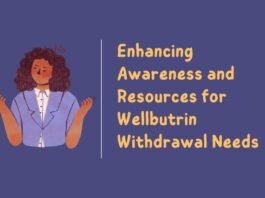
Usually, cancer does not show any unique signs to be detected early, but knowing the most probable signs and symptoms may still prove handy nonetheless. The best cure is prevention, and the earliest visit to your doctor is when you feel any signs.
The worst problem with cancer is that it carries almost the same signs and symptoms as many other diseases and disorders do, and those, too, are revealed not at some early stage but just near the end.
Anyways, here are the most common signs associated with major types of cancer. You must know them to judge for yourself whether or not you are a patient of cancer. But remember to consult your doctor at the earliest if you find any of these signs getting prolonged or/and worse.
1. Weight Loss For Nothing:
Normally a person carries his weight for all good reasons, or there always seems a logical reason if there is any gain or loss in weight over a period. But, if you happen to lose weight by 10 pounds or more for no good or known reason, you may have developed cancer by now, for this is the first sign of cancer. This fast and unexplained weight loss usually happens with cancer of the pancreas, lungs, esophagus, or stomach.
2. Prolonged Fever Over The Weeks:

Fever may be an early sign of blood cancers like leukemia or lymphoma, but this is not a frequent cause. More often, fever comes to cancer patients when their cancer has spread from its starting point. Fever is caused when cancer attacks and destroys the immune system of the patient. Anyways, if you feel a fever in your normal routine, do hurry to see your doctor.
3. Pain in Various Regions:

If you start feeling constant pain in any region of your body and there seems no apparent reason for this, you may have caught cancer. A severe headache lasting many days may indicate suffering from some brain tumor. Body pain may be associated with bone or testicular cancer. Likewise, back pain may indicate the symptoms of colon, rectum, or ovary cancer. The most tragic aspect of this sign is that cancer has spread far-flung by the time the patient feels constant pain.
4. Constant Fatigue:
Feeling extreme and constant tiredness or not getting better after rest may be an early sign of blood cancer leukemia. The patient will be considered lucky if he develops fatigue at an early cancer stage. Colon or stomach cancer may cause severe blood loss, which results in extreme tiredness or fatigue, prompting you to visit your doctor at the earliest.
5. Vivid Skin changes:
Not only skin cancer but also some other types of cancer bring about changes to your skin, such as hyper-pigmentation or darker complexion, jaundice or yellow skin or eyes, erythema or reddened skin, Pruritis or itching and excessive hair growth. Whenever you observe something like these signs, take them seriously and show them to your doctor the soonest you can.
6. Persistent Cough and Blood-tinged Saliva With Severe Hoarseness:

One of the main symptoms or signs of lung, brain, and neck cancer may be a prolonged cough or blood-tinged saliva or mucus that is coughed up. This, along with severe hoarseness, may be the first sign of throat cancer as well. Both cough and hoarseness may also be the symptoms of bronchitis, sinusitis, allergy, and vocal card polyp, but you should still take them seriously and consult your doctor.
7. Notable Changes in Bowel Routine And Blooded Stools:
You may observe a sudden change in your bowel or stool movement with an occasional change in your diet plan or fluid intake. This is normal and may get recovered in a day or so. But if you keep facing diarrhea for a few weeks, pencil stools, dark blooded stools, a sudden change in your stool size and volume or the urge to have a bowel movement shortly after you already have it once, all this needs a serious evaluation on the part of your doctor. Colon or rectal cancer may show these signs and symptoms.
8. Changes in The Bladder Function:
Your bladder or prostate or ovaries may also be being affected with cancer if you find blood in your urine, feel pain while passing urine, have the urge to pass urine more or less often than your usual routine. All this represents a change in your bladder function and must be discussed promptly with your doctor.
9. Unusual Vaginal Bleeding:
Bleeding after intercourse or unusual vaginal bleeding between the periods must be paid due attention as it may be the first sign of uterus or cervix cancer in females. Periodical bleeding if it is heavier or staying longer than usual also needs medical examination.
10. Lumps in Breast or Testicles:
All breast or testicle lumps are not cancerous but all lumps must be properly tested for breast or prostate or testicle cancer. Bloody discharge from one or both nipples is a sign of pathology so one should purpose to visit a doctor for further investigations in order to find the cause of the discharge. Enlarged testicles could be a sign of testicular torsion, varicocele, or testicular infection. You should, therefore, visit a doctor before the infection escalates to the epididymis and affect your sperm production. Almost 90% of men with prostate or testicle cancer have lumps in their testicles which cause them no pains or are never uncomfortable.
11. Indigestion or Difficulties in Swallowing:
Not always, indigestion and swallowing problems are a result of the throat, esophagus, stomach or pancreatic cancer. This means whenever one experiences indigestion, proper investigations must be done to reveal the actual cause so as to get appropriate treatment. Usually, these two problems are present in elderly persons and they need regular monitoring.
12. Non-healing Sores And Patches on Your Tongue And Gums:

Normally, sores can heal with some ointment or oil. But sores do not heal properly or at all in the persons suffering from cancer. Likewise, white patches inside the mouth and white and red patches on the tongue and gums may result in leukoplakia, a precancerous area or stage caused by frequent irritation. If not treated properly such sores and patches may lead to skin or mouth cancer.
Conclusion:
The above said are the common or general signs which show that cancer may be growing in your body. You should take care if you find such signs and consult to the doctor frequently. Remember that prevention is always better than cure.



